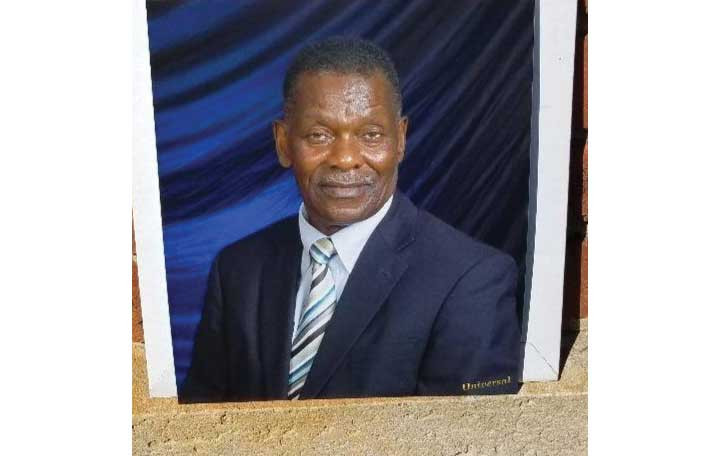
The 2 million Masai tribesmen in Kenya occupy a 700 mile stretch of stretch of land from the Kikuyu Highlands to the border with Tanzania.
Until recently, they have remained outside the mainstream of Kenyan missionary influence and education as they resisted some of the arrogance they experienced in their encounters with missionaries.
After 30 years as a Christian missionary in Sweeden and the US, Reverend Manasseh Mankuleyo returned home to Masai land in 2016 and introduced the Evangelical Church of Kenya.
Theological Foundations
Having observed the secularization of the church in Sweeden and the politicization of the protestant churches in the US, he reached certain non- negotiable conclusions.
While accepting material support from sister white churches in the US and Europe, the white man should never be allowed to be the interpreter of the Bible. He confuses his culture with the body of Christ, an error St. Paul excoriated Jewish Christians for, over the issue of circumcision.
No pagan, no matter how sinful, would be allowed to raise children in the way American Christians raise their children. American children are raised to show contempt and disobedience to elders and parents.
Thirdly, relationships between African Christians and our Eurocentric brothers should be guarded carefully, as the later tend to bring in matters affecting their disruptive social context to the table. They create problems for Africans which were not there before.
“Surely, the white man should never be allowed to be a role model for our children,” he muses now, half speaking to himself.
The Masai have clear developmental stages, each stage well defined with responsibilities and guidelines.
Like all great leaders, Mankuleyo was prophetic. No sooner had he ordained his first group of evangelists than our American Christian brothers, influenced by US president Barak Obama (of Kenyan origin) began to propagate the homosexual gospel (2008-2016).
Obama, believing himself to be the most handsome and charming being in the universe, and a messenger of the Most High God, like his Greek counterpart, Antiochus Epiphanes of Syria, seduced US churches to a gay-marriage gospel.
The Masai did not have a word for “gay” or for a “Trans-gender human.”
Before the Masai could master the issues pertaining to gay life in the body of Christ, Anglo-Americans (now joined by the British Episcopalians) introduced a new gospel, the “Trans-gender gospel.”
Contrary to century old rules, gay-gospelers introduced gay-life and gay partnerships through a carrot and stick method, via the United Methodist Church and the Kenya Anglican Church.
The “Trans” gospel assumes a girl (or a boy) by her own wish can with the help of corrupt doctors change her gender.
Mankuleyo was emphatic on this issue. The matter was brought before the Kenya Council of Churches but affected the Episcopal (Anglican) Church more directly. The Bishop of Canterbury and his associates had written a condescending letter to the Christian brothers in Kenya, advising that it behooves the church to consider secular influences and to assimilate such ideas as were practical.
Together with this condescending epistle were attached promise of monies which the Kenyan church could use for development and evangelization.
Kenyan Anglican Archbishop Jackson Ole Sapit was tasked by the Council of Churches to reject the attempt to shift the gospel of Christ from a religious base to a secular and social platform. This approach, the Kenyan clergy believed was a death warrant (as indeed had been the case in Europe) of the gospel of Christ.
“Perish thee with thy gold and silver,” was the response, as they returned the bribe.
Ole Sapit, in an epistle to the British Episcopalians, added that continuing the path they are on now, will make the English church “irrelevant” to the world.
Mankuleyo’s heart was broken when one of his white sons in Christ, after visiting Britain, returned home to Kenya as a disciple of the gay gospel.
In his prophetic wisdom, Mankuleyo had already side-lined the Anglo-American churches as influencers and interpreters of the gospel in the Evangelical Church at its foundation in 2006.
In love with Masai children
While I was scheduled to make one presentation at the conference, I found myself in dire straits, pleading with the Holy Spirit to put words in my mouth.
Two Masai girls, Neema (6) and Sharma (13), the little one acting as the children’s secretary and the older girl acting as director called on the “Professor from the US to share a few words for children.”
I must have risen to the occasion because when I announced my farewell, the children cried. “Oh, Papa is going away. And he has brought us some clothes.”
They asked the archbishop if they could sing a farewell song. But wait for this.
But wait for this. The secretary hurriedly wrote a letter, wishing me a “save (yes save journey).” Having no money or anything of value to give to one traveling a long journey, they plucked some wildflowers from Masai Mara (where buffaloes, elephants, and zebras graze) and put them in an envelope for me to remember them by.
Now, I too was in tears. God has been merciful to allow me to share my love for Christ.
I asked them to teach me one song. These are the words of the song.
Milela Milela Ameni (Swahili)
God is good. It is true.
Now I could not hold my tears.
My long-time friend Fabián Mabaya later explained to me that it is part of Ubuntu to give a traveler something for the traveler to show that he was received gracefully in that community.
Bishop Mankuleyo was inspired by realizing that the Masai did not need to abandon their Ubuntu, but that that Ubuntu could be perfected in Christ.
(To be continued)
*Ken Mufuka is a Lay Servant of the United Methodist Church and a Zimbabwean patriot







